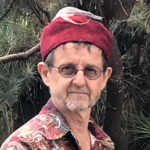

3 Day Evidence-Based Workshop
This workshop focuses on helping therapists to minimise upper limb impairments post-stroke, & increase engagement in activities. The workshop will be of interest to occupational therapists & physiotherapists from hospital & community based settings, who teach adults following stroke & acquired brain impairment, as well as university lecturers.
Presenters
- Dr Annie McCluskey & Karl Schurr
Learning Outcomes
At the completion of this course, you should be able to:
- Name the essential components (invariant kinematic features) of normal reach and manipulation.
- Recognise common compensations when observing people with stroke/brain injury attempting to reach for and use everyday objects; understand and explain why these compensatory strategies should be discouraged during practice.
- Discuss factors thought to contribute to the development of muscle overactivity/spasticity, and strategies to prevent these secondary problems.
- Explain the relationship and differences between spasticity/overactivity, muscle length changes, missing essential components and compensations.
- Plan and conduct an observational analysis and motor training session with a person who has had a stroke
- Name key factors that affect motor learning, and how these factors can be modified to enhance learning and increase intensity of practice. Use an electrical stimulation machine to stimulate paralysed muscles.
- Discuss evidence related to various interventions including constraint-induced movement therapy and mirror therapy to improve motor recovery and function of a person’s upper limb.
Workshop material
The teaching material presented in this workshop has been developed by Annie McCluskey and Karl Schurr from the StrokeEd Collaboration.
Download Event Poster
Last min spots available!
When: Friday 29th Sept – Sunday 1st Oct 2023
Where: 139 Boundary St, South Townsville
Cost: $990.00 per person (inc GST)
RSVP: Book below or email events@alliancerehab.com.au for more info
Morning Tea, Lunch and Afternoon Tea provided on all days.
Day 1 – Friday 29th Sept
8.00 Housekeeping, introductions; workshop overview
8.30 Session 1 Analysis of normal movement: Essential components of reach and grasp (cup, pen, cutlery, brush). Anatomy revision.
10.00 Morning Tea
10.20 Session 2 Analysis of Abnormal Movement: Missing components and compensations with videos. Allocate groups.
12.15 Lunch
1.00 Session 3 Being an Effective Coach 1: Focus on goal setting, feedback, practice intensity and measurement, with feedback video.
2.15 Session 4a Demonstration 1: Analysis and training of stroke participants 1 and 2; provision and set-up/video of overnight practice by tutors
3.15 Afternoon Tea
3.30 Session 4b Demonstration 2: Analysis and training of stroke participants 3 and 4; provision and set-up/video of overnight practice by tutors
4.30 Large group discussion and questions. Evaluation form. Round robin with each person stating “One thing I learnt today…..”
5.00 FINISH
Day 2 – Saturday 30th Sept
8.00 Session 5 Implications of evidence for clinical practice: A case example. Muscle length changes and spasticity. Interventions including stretching, splinting, casting, positioning and botulinum toxin
9.30 Session 6 Training Ideas and Being an Effective Coach 2: With videos
10.10 Morning Tea
10.30 Session 7 Training Ideas / Being an effective Coach 2 (continued) Setting up the Physical Environment to Optimise Practice: Videos /practical
12.15 Lunch
1.00 Session 8a Clinical Session 1: Review practice and homework from Day 1 with 4 stroke participants (by tutors).
1.40 Groups meet for 15-20 mins to plan for Clinical Session 2 (eg Equipment needed; tasks to analyse; sequence of coaches)
2.00 Session 8b Clinical Session 2: Groups assess /analyse (20-30 mins) together, then take turns training a new stroke participant. Aim for 300 repetitions. Write up /video overnight practice for hospital/home.
3.30 Working afternoon tea – Meet in small groups to discuss session, including coaching
4.00 (Evaluation form). Meet for debrief and discussion as a large group. Round robin with each person stating ‘One thing I learnt today….”
4.30 FINISH
Day 3 – Sunday 1st Oct
8.00 Session 9 Evidence of Therapy Effectiveness -Lectures interspersed with videos and practical: (i) Electrical stimulation (ii) Mental practice
10.15 Morning Tea
10.30 Session 9 continued – (iii) Constraint therapy (iv) Mirror box therapy
12.15 Lunch
1.00 Session 10a Clinical Session 3: Groups review practice and goals for stroke participant from Day 2. Re-measure performance. Progress practice.
2.00 Stroke participants have a short break. Groups provide verbal handover to the next group, including suggestions for training. Plan tasks to analyse, equipment needed and sequence of coaches
2.15 Session 10b Clinical Session 4: Groups analyse and train another stroke participant. Aim for 300 repetitions. Audio-record coaching. Observe and record other coaches giving feedback. Set-up /video take-home practice.
3.00 Working afternoon tea – Groups meet to discuss session including coaching
3.30 Discussion as a large group/ Qs arising over 3 days. Statement of goal intentions. Evaluation form. Round robin with each person stating ’When I return to work next week, one thing I will do is ….”
4.00 FINISH

 Dr Annie McCluskey
Dr Annie McCluskey Karl Schurr
Karl Schurr